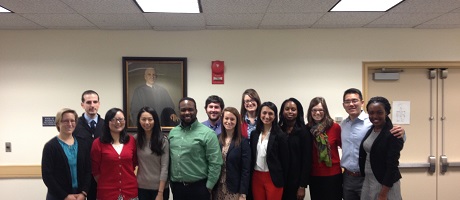PAFs had various opportunities to learn about bias this month, and one of major takeaways from our discussions was that a great way to confront our personal biases is to build genuine relationships with people who are different from us.
In the Division of Student Affairs Forum on everyday bias, we learned that bias is inevitable, but that raising awareness about our personal biases and how they affect others, especially in the workplace, is the first step to confronting those biases.
One of the issues that Dr. Terri Harris Reed, Vice Provost of Diversity and Inclusion, mentioned in the forum was the impact of bias. Regardless of whether bias is intentional or unintentional, it still affects the victim of bias.
We delved into the impact of bias even more in our weekly meeting on Wednesday, February 11, when Maurice Smith from the Center for Civic Engagement and Public Service led a workshop on microaggressions. According to the New York Times, microaggressions describe “the subtle ways that racial, ethnic, gender and other stereotypes can play out painfully in an increasingly diverse culture.” Microaggressions are based on assumptions we make about people. They include saying things like “you throw like a girl,” backhanded compliments on how articulate a black student is, or excessive questioning of someone who is different from you.
Hearing about fellow PAFs experiences with microaggressions was extremely rewarding, and highlighted the benefits are learning from a diverse cohort. After our discussion with Maurice, we unpacked common microaggressions and talked about what certain statements meant without bias embedded in them. PAF Faculty Advisor Kathy Newcomer and Professional Development Advisor Sara Melita helped us to debrief on these discussions and understand how to apply them to our professional and personal lives.
These discussions proved to be helpful in not only confronting our own bias, but in learning how to deal with bias from others as we continue to grow as working professionals.


